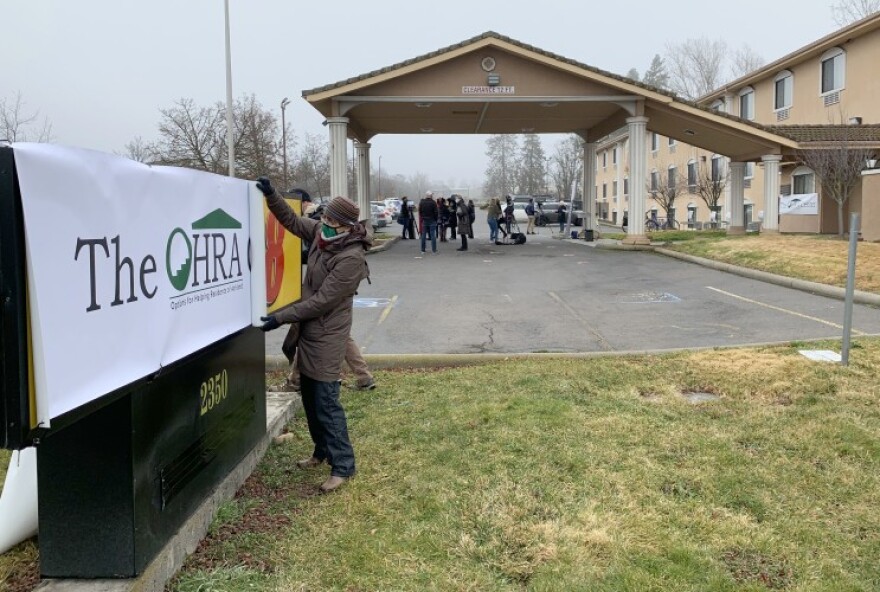Oregon state lawmakers approved a measure on Wednesday that embodies the times we are living in: The bill would ease the ability to convert hotels and motels — pummeled by the coronavirus pandemic — into long-term affordable housing for people who lost their homes in the wildfires or who are otherwise unhoused.
Rep. Pam Marsh, D-Ashland, who sponsored House Bill 3261, and represents a region where 2,500 homes were wiped out in Oregon’s 2020 wildfire season, said the ability to quickly turn some hotels into emergency shelters has been “a godsend.”
“This allows us to repurpose hotels and motels that have housed tourists to house the most vulnerable,” Marsh said on the House floor.
The bill would pave the way for converting motels or hotels into emergency shelters or long-term affordable housing even if current zoning laws would prohibit doing so. The building must, however, be within the city’s urban growth boundary.
The mere fact that legislation passed also marks an increasingly rare moment in the House where partisan gridlock has slowed all legislative progress to a crawl and made it increasingly challenging to debate policies.
There are other similar housing efforts underway in the state, including what has been dubbed Project Turnkey, where the state carved out $65 million to buy and convert motels into temporary shelters. House Speaker Tina Kotek also has a bill, House Bill 2006, that would allow local governments to waive design, planning and zoning regulations to approve the siting of emergency shelters.
House Republican Leader Christine Drazan, R-Canby, said Marsh’s legislation highlights a larger problem the state is facing: unworkable land-use laws.
“This takes our land-use system and acknowledges that it’s broken,” Drazan said, voting against the measure, and instead calling for an overhaul of the state’s land-use laws.
The measure now heads to the Senate.
Shortly after the bill passed, legislators were back to relying on computer software to read legislation word by word.
For weeks, Republicans have been requiring all bills be read in full before a final vote.
Republican Leader Drazan has called on Democrats to open the Capitol to the public, to kill deeply controversial legislation, move only bills with bipartisan support and give more consideration to Republicans’ input.
On Wednesday, Kotek offered her own proposal to Drazan. In a letter, Kotek asked Drazan to allow lawmakers to consider budget bills without them being fully read out loud.
The constitution states bills must be read in full before passage. But in previous years, both parties agreed to skip bill reading. It takes two-thirds of members to waive the rule. Republicans have started increasingly voting against waiving the rules, relying on the tactic to slow the overall agenda and maintain leverage over majority Democrats.
“I don’t think anyone should be playing politics with the budget rebalance package,” Kotek wrote Drazan on Wednesday.
Some of the budget bills under consideration would include $250 million for a summer learning and child care package, also funding for homeless shelters and wildfire recovery.
Copyright 2021 Oregon Public Broadcasting



